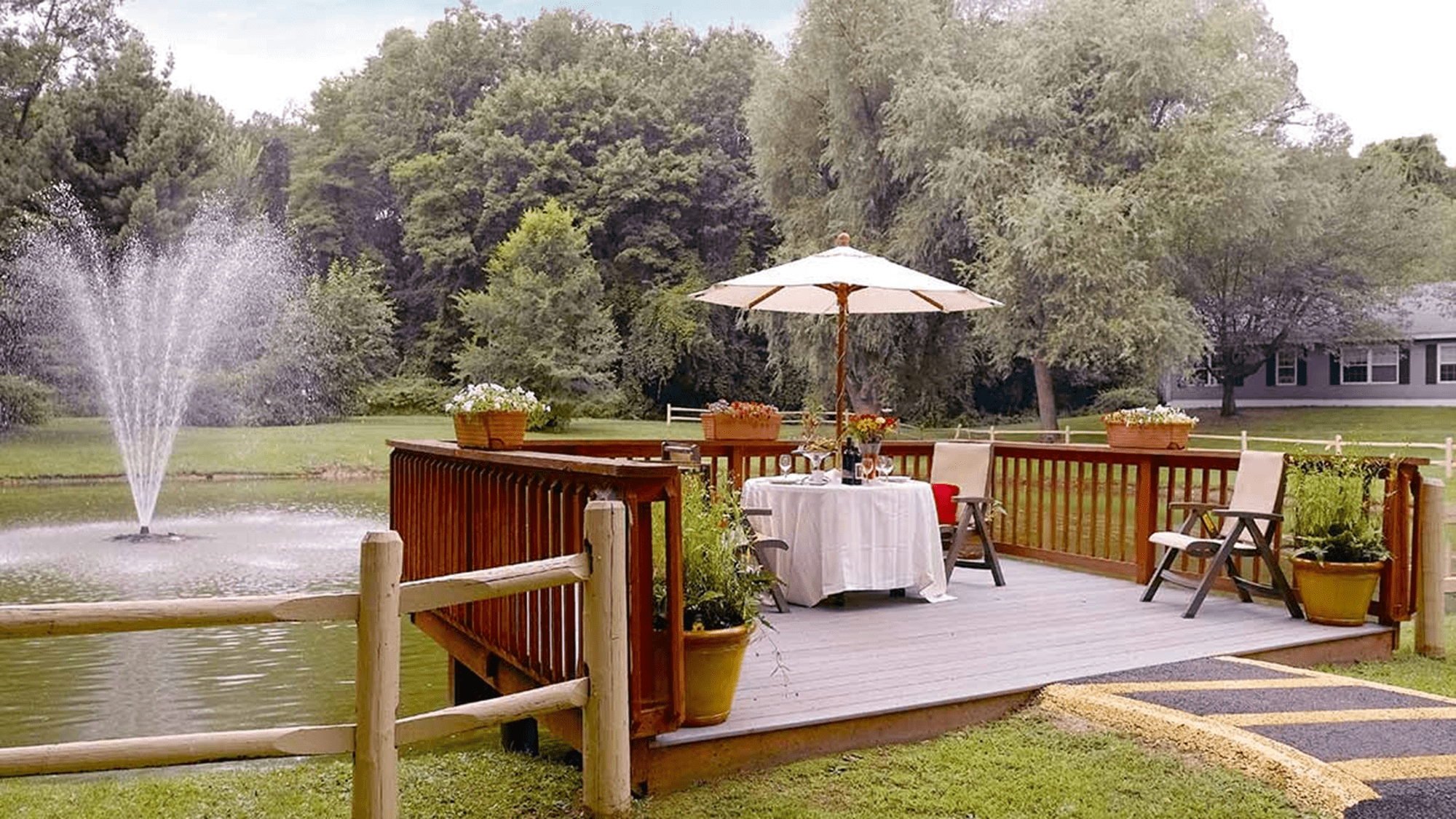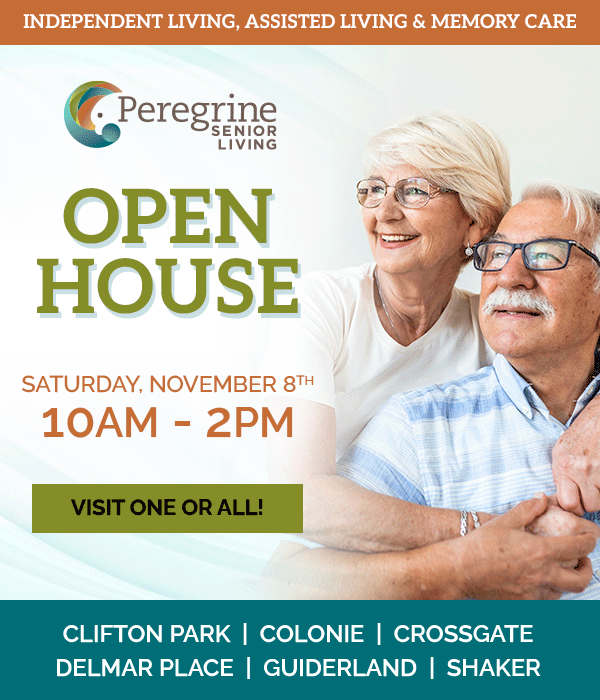Deciding when your loved one needs additional support can be one of the most challenging conversations you’ll face as a family. You might notice small changes at first—perhaps they’re struggling to keep up with household tasks or seem more isolated than usual.
These 11 signs help you recognize when it is time to explore assisted living options for your loved one. At Peregrine Senior Living at Crossgate, we understand this transition and offer both independent living and assisted living options that support seniors’ independence, meeting your family’s unique needs.
Key Takeaways
- Physical health decline, memory concerns, and difficulty with daily tasks can indicate assisted living needs
- Social isolation and home safety risks may suggest a need for community-based senior care
- Family caregiver burnout often signals when professional support becomes necessary
- Recognizing these signs early helps families make informed decisions about senior living options
1. Decline in Physical Health and Mobility
Changes in Movement and Balance
You may notice your loved one moving more slowly or using furniture and walls for support when walking. Frequent falls or near-misses become concerning patterns rather than isolated incidents. These mobility changes can make simple tasks, such as getting dressed or preparing meals, increasingly complex.
Personal Care Challenges
Personal hygiene might decline when your loved one struggles with bathing, grooming, or dressing independently. You may notice changes in their appearance, such as unwashed clothes or difficulty managing personal care routines. These challenges often indicate that gentle, professional assistance could help them maintain their dignity and comfort.
2. Worrying Memory Loss and Cognitive Changes
While occasional forgetfulness is normal, more significant memory issues can signal a need for additional support. You might notice your loved one forgetting essential appointments, repeating questions, or becoming confused about familiar places and people. Senior living communities can provide structured environments that support cognitive health; however, specialized memory care is often a better option for seniors with dementia or Alzheimer’s than assisted living.
3. Difficulty Managing Household Tasks
Home Maintenance Struggles
Routine housekeeping tasks may become overwhelming for your loved one. You might find piles of laundry, dishes in the sink, or a general decline in home cleanliness. These changes often reflect physical limitations or cognitive challenges rather than a lack of caring.
Financial Management Problems
Unpaid bills, duplicate purchases, or unusual financial decisions can indicate difficulty managing money matters. Your loved one might forget to pay utilities, struggle with balancing a checkbook, or become vulnerable to financial scams. Professional senior care communities often help residents navigate these concerns with dignity and support.
4. Medication Management Issues

Missing doses, taking incorrect amounts, or confusion about prescription schedules can create serious health risks. You may find expired medications, duplicate prescriptions, or bottles that appear to be either too full or too empty based on the prescribed schedule. Assisted living communities offer medication oversight, which helps residents stay healthy and safe while maintaining their independence in other areas of life.
5. Increasing Social Isolation
When your loved one stops participating in activities they once enjoyed or rarely sees friends and family, loneliness can significantly impact their mental and physical health. They might decline invitations, stop attending social gatherings, or appear withdrawn during conversations. Senior care communities create natural opportunities for connection through shared meals, activities, and common spaces where friendships can flourish.
6. Home Safety Concerns
You may notice potential fall risks, such as loose rugs, poor lighting, or clutter, throughout their home. Kitchen safety becomes a concern when you find burned pots, forgotten appliances, or expired food in the refrigerator. These environmental factors can create daily risks that professional communities address through thoughtful design and safety features.
7. Changes in Eating and Nutrition
Weight loss, forgotten meals, or a refrigerator full of expired food can indicate that your loved one struggles with meal planning and preparation. They might rely too heavily on convenience foods or skip meals altogether. Restaurant-style dining in senior communities ensures residents enjoy nutritious, delicious meals in a friendly atmosphere without the stress of cooking and cleanup.
8. Transportation and Mobility Limitations
When driving becomes unsafe or your loved one stops leaving home for appointments and errands, isolation often follows. They might miss critical medical visits, stop grocery shopping, or become dependent on family members for all transportation needs. Senior living communities often offer transportation services and are conveniently located near essential amenities and healthcare providers.
9. Frequent Hospital Visits or Health Scares
A pattern of medical emergencies, repeated hospital visits, or health crises might suggest your loved one needs more consistent health monitoring and support. These incidents often happen when minor health issues go unnoticed or unaddressed at home. Assisted living communities offer health oversight that can help prevent minor concerns from developing into significant problems.
10. Family Caregiver Burnout
You might find yourself constantly worrying about your loved one’s safety and well-being. The physical and emotional demands of caregiving can affect your own health, work, and relationships. Feeling overwhelmed, exhausted, or resentful doesn’t make you a bad person—it makes you human. Respite care services can provide temporary relief for overwhelmed caregivers.
11. Resistance to Help at Home
Your loved one might refuse in-home assistance, feeling uncomfortable with strangers in their personal space or wanting to maintain their privacy. However, they may be more accepting of support within a community setting where assistance feels more natural and social. The community environment can make receiving help feel less intrusive and more like neighborly support.
Find Support For Your Loved One With Peregrine Assisted Living
Recognizing these signs is the first step toward finding the proper support for your loved one. At Peregrine Senior Living at Crossgate, we create a warm, welcoming environment where residents can maintain their independence while receiving the support they need. Our approach focuses on celebrating each person’s unique qualities and helping them stay connected to themselves and their families.
If you’re noticing several of these signs in your loved one, contact us today to discover how our approach to senior care can provide the support your family needs while maintaining the dignity, comfort, and joy your loved one deserves.













Happy Valentine’s Day! ❤️
Love takes many forms—between partners, friends, families, and even across generations.
Today we celebrate the love that fills our community: the care shared between residents and team members, the laughter that brightens our halls, and the sense of belonging that reminds us we’re never alone.
May your day be filled with connection, warmth, and heart.
peregrinecrossgate.com/ ... See MoreSee Less
0 CommentsComment on Facebook
February is American Heart Month, a time to focus on caring for the muscle that keeps us moving and thriving. 🫀
We encourage residents to take heart-healthy steps every day: enjoying balanced meals, staying active, connecting socially, and taking moments to rest and recharge.
Together, we can make heart health a daily celebration of life and well-being.
peregrinecrossgate.com/ ... See MoreSee Less
0 CommentsComment on Facebook
🎼 ❤️ Today, Crossgate Community took a trip to attend a special organ concert at Schenectady Proctors theater as part of their Valentine's Day celebration.
#Valentinesday #Proctors #SeniorLivingCommunity #PeregrineCrossgate ... See MoreSee Less
0 CommentsComment on Facebook
🍕 ❤️ In honor of National Pizza Day yesterday and Valentine's Day coming this weekend, our residents made heart-shaped pizzas with their special toppings. They were delicious! 😋 ... See MoreSee Less
2 CommentsComment on Facebook
Want to stay connected with what’s happening across our community?
Follow us on Instagram for updates, moments we love, and stories worth sharing.
Come join the community by following us via the link below ⬇️
www.instagram.com/peregrinecrossgate/ ... See MoreSee Less
Learn More
Senior living in Albany, NY | Peregrine Crossgate
peregrinecrossgate.com
Discover compassionate senior living in Albany, NY. We offer independent and assisted living in a warm, family-centered community. Book your tour today!0 CommentsComment on Facebook
Our Talented Resident here in our Community, Lois playing “ in the Garden “ on our Community Organ. How beautiful! 🎼😊 ... See MoreSee Less
2 CommentsComment on Facebook
Super Bowl Sunday is here! 🏈 🍕🏆
Which team are you rooting for? Comment below! ⬇️
#SuperBowlSunday #patriotsseahawks #peregrinecrossgate
#seniorlivingcommunity ... See MoreSee Less
3 CommentsComment on Facebook